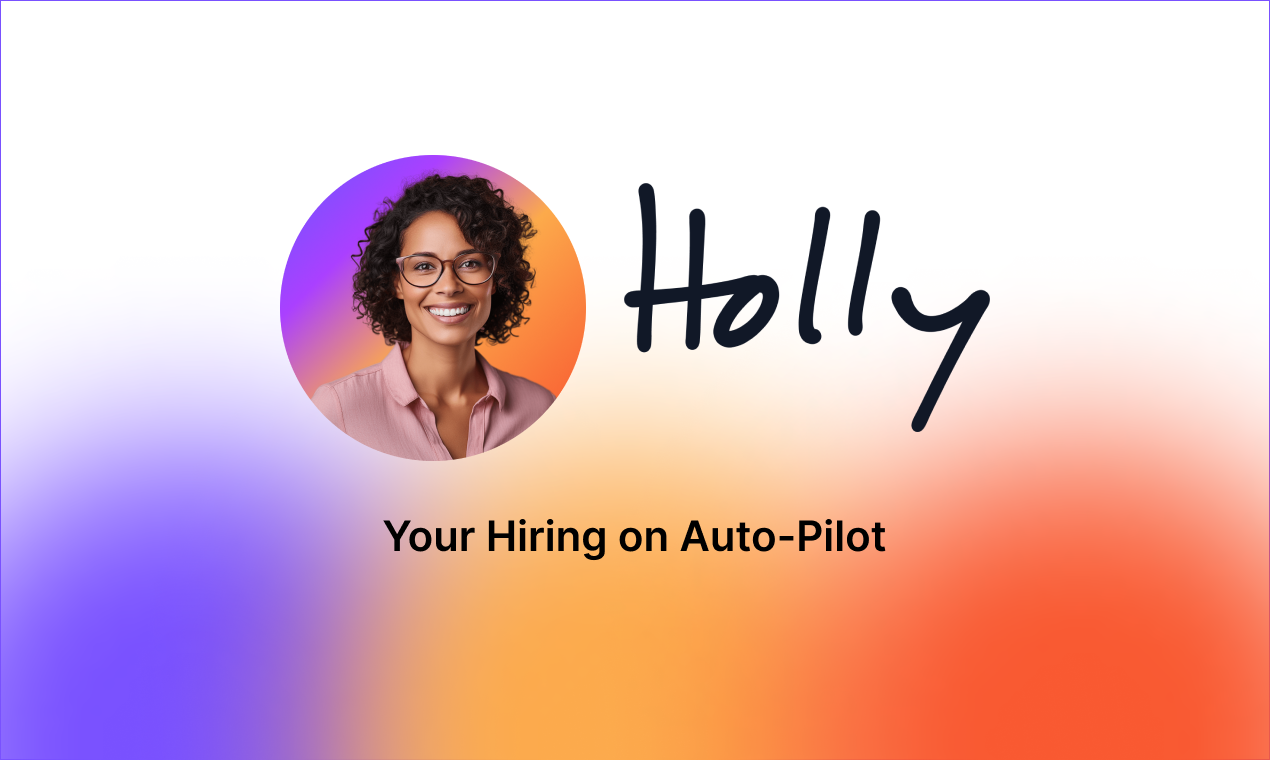AI Recruiters: The Ultimate Guide for 2024

Ranking criteria
To rank these AI recruiting tools, we considered:
- Usability: How user-friendly and intuitive is the platform?
- Use-case clarity: Is it clear what problems the tool solves?
- Accessibility: How easy is it to access and use the tool?
- Competitive pricing: Is the pricing fair and competitive?
- Effectiveness: Does the tool genuinely improve the recruitment process?
- Is it cheaper with ChatGPT? The final question we used to determine if it was worth including.
When we thought about our perfect AI Recruiter it had to do one thing better than anything else – it needed to screen an application, compare it to the original job posting, recommend the best-fit candidate accurately, and suggest what questions to ask on the first screening call.
Braintrust AIR
Pros to Braintrust AIR
Braintrust AIR was the top platform that we've reviewed. The product truly understands how recruiters work, it has well-thought-out workflows and it doesn't attempt to automate parts of the recruiting process that would make potential candidates feel devalued.
Among everything that Braintrust AIR offers, we appreciated its focus on assisting candidates with their interviews including assisting with lighting, providing feedback on talking points they should include and helping them ace calls through practice interviews.
We did appreciate its ability to auto-schedule interviews and move top candidates through a candidate funnel.
Cons to Braintrust AIR
Braintrust AIR is part of the Braintrust family and the platform is mostly targeted towards traditional staffing agencies for contractors. Braintrust's fees are 15%, which seems pretty high for smaller companies that are looking to hire great part-time or full-time roles.
Ribbon
Ribbon transforms the hiring process with AI phone screens that deliver instant interview insights and flexible scheduling. There are many companies that are doing similar functions like Shortlist and Holly.
Pros of Ribbon.ai
Ribbon appears to be the most trustworthy of the AI interviewing tools. It avoids frills like other virtual interviewing tools do. Overall, it seems to be the most professional of the AI screening tools.
Ribbon feels like it was designed for both the recruiter and the candidate in mind. It allows the candidates to prepare responses before they are recorded.
Ribbon integrates natively within your ATS. If you are using a tool like Ashby, Greenhouse or Lever, Ribbon makes it easy to send out the steps to candidates.
Cons of Ribbon.ai
- A little hard to navigate at first: We weren't sure how to start within the platform. After a few minutes, we got the hang of it, but it felt a bit tedious to set up multiple sets up interviews for different roles.
- Help documentation: There did appear to be any help docs available publically on the Ribbon platform.
See more on how Ribbon works
TechWolf
TechWolf is built for enterprises. TechWolf absorbs data from all of the platforms in your company's tech stack, analyzes it user-by-user, categorizes the unstructured data, and helps you determine what skills and potential your existing workforce has to offer. TechWolf is the most powerful tool we're reviewing and is perfect for companies looking to re-organize their workforce.
Pros of TechWolf
- Powerful: TechWolf ingests millions of data points and can direct HR teams on what roles you need to hire next. If a team is looking to increase headcount while another needs to be reorganized, then TechWolf can help you figure out how to move candidates around.
- Clear use case: TechWolf proactively analyzes company data and helps you make hiring decisions using live data within your platforms
Cons to TechWolf
- Optimized for the enterprise: TechWolf is designed for large companies (1000+) and states it on their website. TechWolf supports companies looking to strategically realign their businesses.
- TechWolf is expensive: This is not a cheap piece of Software. We are still evaluating pricing, when we get it, we will update this article.
ShortlistIQ
Pros to ShortlistIQ
ShortlistIQ provides candidate scoring and analytics. There were a few tools we were interested in like candidate chat features, AI interview assistants (similar to HeyGen), and candidate scoring. We tried them all and our opinion was the platform is ambitious. It is looking to automate parts of the interview process before the technology has caught up to it.
Cons to Shortlist IQ
Candidate scoring tool: The candidate scoring tool was intriguing, but the long responses took too long to read and the scoring criteria was ambiguous. It appeared to be a ChatGPT wrapper and did not update as dynamically as we would have liked – especially when we removed candidates. The platform doesn't appear to learn based on your interactions with it. After testing 20 resumes we decided that the candidate scoring tool was not all that useful.
AI interview assistants: Whenever we are evaluating tools for recruiters, we want to make sure they are quick to set up. The AI recruiters were ambiguous to set up. We belive it is worth adding that this kind of technology, across the entire industry, is in its very early stages. Perhaps in a few years, this will seem more natural and understandable.


Holly (hollyhires.ai)
Holly claims that it leverages AI to match job descriptions to best-fit applicants. We understood the use case immediately and found the native 50+ ATS systems it integrates with enticing. We were searching for help documentation and couldn't find any; for their target audience, this is a must.
Pros:
Holly embeds directly into your ATS. This is core to any company doing high-volume staffing or if they have an internal recruiter.
Cons
- No unpaid plan: Holly does not have an unpaid plan for our team to test the platform. It requires for us to set up a meeting with the sales team.
- The sourcing tools are ambiguous: We still are unsure how Holly's outbounding tools works. There are other tools available like Fetcher and HeroHunt.ai that are better suited for outbounding at this time.
- Awareness: We reached out to 6 companies that are mentioned as ATS's on the Holly site and our employee contacts did not know their ATS had Holly available.


Talently.ai
Talently.ai features an AI interviewer who conducts live, conversational interviews and gives real-time evaluations. All of the platforms above offer something similar but Talently only focused on using virtual AI assistants to conduct interviews.
Pros to Talently.ai
- Talently is only focused on interviewing applicants using virtual AI interviewers
- The platform is easy to navigate and set up
Cons
- Pricing: Pricing is high at $79 compared to competitors who offer more.
- Self-serve: You must schedule a call with a sales rep to get access. There is not a self-serve option.


SideRamp's closing thoughts
Many of the AI recruiting tools are in their infancy. We found the top-performing tools like Braintrust and TechWolf to be unattainable to various parts of the market and perhaps a bit on the expensive side.
We are not confident that live AI interviews are going to be leading the future of recruiting yet. In a few years, we will likely see many interview processes run by AI interviewers and hiring decisions enhanced by LLMs working behind the scenes to make companies more objective.







